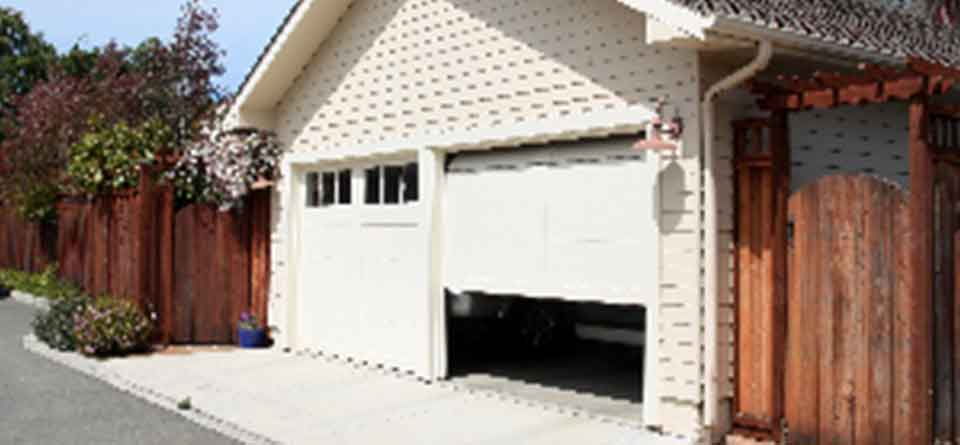The screech or squeak of a garage door can be as grating as nails on a chalkboard. But squeaky garage doors are more than just annoying. Garage door problems can affect your garage’s structure and integrity and can threaten your safety.
When it comes to a squeaky garage door, there isn’t just one cause. To solve the cause of the squeak, make sure you check for all the following issues.
Loose Nuts and Bolts
One of the simplest fixes to a squeaky garage door is to tighten loose nuts and bolts. Look closely at all the nuts and bolts on your garage door for any that look loose. If parts are loose, tighten them with a socket wrench.
Make sure not to tighten the nuts and bolts too tight, though. If nuts and bolts are too tight, they can cause damage to other garage door parts. Tighten them firmly, but don’t force them.
Loose Chain
Another garage door part that is often loose is the garage door chain. If the chain is loose, you might hear slapping sounds as you open your garage door. You might also see your garage door jerk when it opens or closes.
If a loose chain is the problem, follow these steps:
- Turn off the power to the garage door.
- Pull the rope on the emergency release.
- Use your wrench to loosen the nut that’s closest to the opener head. Turn the nut counterclockwise while holding the other nut in place.
- Use the wrench to turn the other nut clockwise.
Just like with the nuts and bolts, you shouldn’t tighten the chain so much that it can’t move freely.
If you don’t feel comfortable tightening the chain, call a garage door professional.
Clogged or Broken Track
Look for any debris stuck in the garage door’s track and clean it out with a cloth or bristled broom.
Also, look at your garage door’s tracks for any of the following issues:
- Cracks
- Gouges
- Pockmarks
- Splintering
A garage door professional should repair or replace a damaged garage door track.
Worn Wheel
Climb on a ladder to watch the wheel above the garage door as the door opens and closes. If the wheel shakes and moves along with the door, it probably requires replacement.
Replacing the wheel can be tricky, so have a garage door professional replace your worn wheel.
Worn Hinges
When your garage door’s hinges get worn from frequent use, you might need to get them repaired or replaced. Signs of a worn hinge include:
- Dust and metal scraps around the hinge pin
- A hole between the hinge pin and bracket
- Shaking hinges when you open or close the door
- Chips or breaks in the hinge structure
If you notice these problems, it’s time to get your hinges replaced.
Worn Rollers
Like other worn garage door parts, your door’s rollers might start to wobble as they move along the track.
It’s safer to have a professional replace your worn rollers. This is especially true of the rollers in the bottom brackets of the hinge. These rollers are under a lot of tension, and replacing them incorrectly could cause injury.
Older roller models with unsealed bearings wear down more easily—nylon rollers are a better choice.
Misalignment
Perhaps the most common reason for squeaky garage doors is that over the years, your garage door parts have become misaligned and are rubbing against each other.
Since misalignment is a complicated issue, you’ll need to call a garage door professional to re-align the garage door.
Rusty Parts
If you’ve addressed all these problems and your garage door still squeaks, rust might be the cause of your garage door’s squeak.
Look closely at the following parts for any signs of rust:
- Hinges
- Roller bearings
- Torsion bar bearings
- Pivot points
If you notice rust on your parts, clean them with a spray solvent.
You should lubricate all your door’s moving parts about every six months. Use a lubricant made specifically for garage doors (other types of lubricates can attract dirt that affects your garage door’s performance). You should also choose a lubricant made for outdoor use so it can withstand tough weather conditions.
After lubricating your parts, open and close the door a few times to allow the lubricant to spread. Then wipe off any extra lubricant with an old rag.
When to Call a Garage Door Professional
On your own, you can examine your garage door, lubricate parts, and tighten loose parts. But most kinds of garage door repair and replacement should be handled by a professional.
A garage door professional has the experience and expertise to repair or replace your garage door parts. He or she also has access to the highest-quality parts for all major garage door brands.
If your garage door won’t stop squeaking, call Raynor Door Company. We’ll solve your garage door problems and make sure it runs smoothly and quietly.


